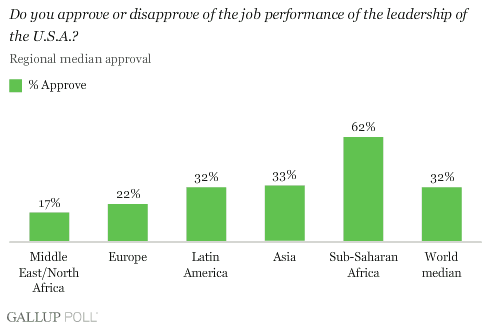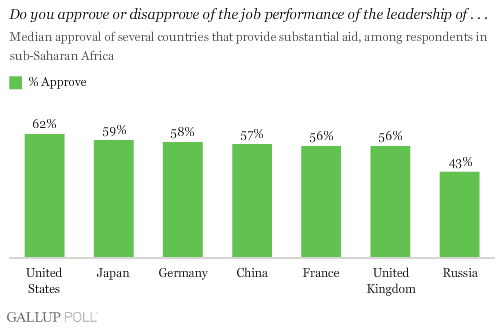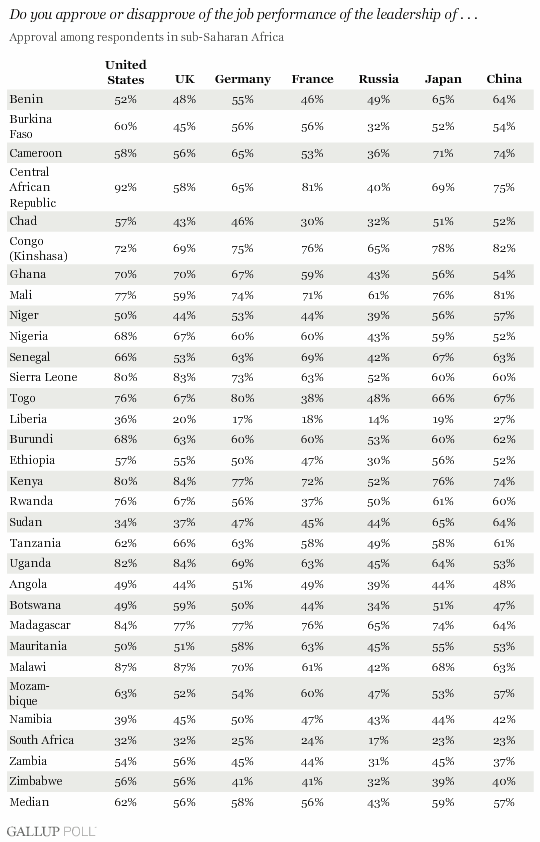This article is the second in series that will examine approval of U.S. leadership around the world and potential areas of focus for the next presidential administration. This article looks at sub-Saharan Africa, where approval is highest.
WASHINGTON, D.C. -- ���۴�ýPolls in 139 countries reveal approval of U.S. leadership in sub-Saharan Africa is about twice as high as it is in other areas of the world. But residents in the region tend to be just as approving of the leaderships of several major nations that provide aid to sub-Saharan Africa.

In sub-Saharan Africa, majorities in 23 of the 31 countries surveyed say they approve of U.S. leadership. Approval is highest in nations such as Central African Republic (92%), Malawi (87%), Madagascar (84%), and Uganda (82%). But in Sudan (34%), Namibia (39%), Angola (49%), Botswana (49%), and Niger (50%), less than a majority approve of U.S. leadership. Leadership approval is low in South Africa (32%) and Liberia (36%), but high percentages in these countries say they don't have an opinion, and they are still more likely to approve than disapprove.
These relatively high approval numbers for U.S. leadership may reflect the Bush administration's substantial humanitarian and health initiatives in sub-Saharan Africa. However, the United States is one of many major nations with influence in the region, and it doesn't have a monopoly on high leadership approval in this region of the world.

Median approvals of the leadership of several other countries who make significant contributions in the region, such as Germany, China, and Japan, are similarly high. Ratings of the leadership of the United Kingdom and France are also positive, with a regional median of 56% approving of each country's leadership. Approval of Russia's leadership is lowest of the countries tested, but it is important to note that substantial percentages in many countries say they don't have an opinion.
The next U.S. administration will inherit goodwill in at least one region of the world, but also hefty aid commitments. The House of Representatives last week reauthorized the continuation of Bush's PEPFAR (President's Emergency Plan for AIDS Relief) program, which each of the major presidential candidates supports.
Survey Methods
Results are based on telephone and face-to-face interviews conducted throughout 2005, 2006, 2007, and 2008. Randomly selected sample sizes typically number 1,000 residents, aged 15 and older, in the 139 countries polled. In Angola and Congo (Kinshasa), surveys were conducted in urban areas. Surveys in Chad and Sudan did not include Darfur. For results based on samples of this size, one can say with 95% confidence that the maximum error attributable to sampling and other random effects is ±3 percentage points. The margin of error in countries in sub-Saharan Africa is ±5. In addition to sampling error, question wording and practical difficulties in conducting surveys can introduce error or bias into the findings of public opinion polls.

